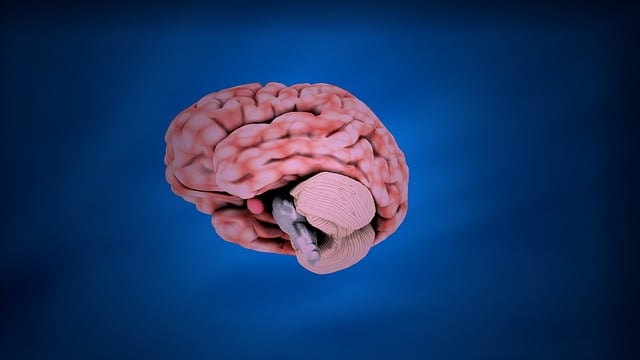Crisis Intervention Teams (CITs), powered by specialized training like Littleton EMDR Certified Therapy, offer immediate, trauma-informed support during mental health emergencies. This multifaceted approach combines evidence-based techniques (e.g., EMDR) with interpersonal skills development, enhancing collaboration and compassion in crisis scenarios. Through role-playing and practical exercises, CIT training equips professionals to navigate complex situations involving mental illness and trauma, contributing to improved Mental Health Policy goals and reduced stigma. Ongoing development ensures teams stay current with innovative practices, fostering a supportive environment for continuous learning and nuanced trauma care.
Crisis intervention team (CIT) training programs are essential in equipping professionals with the skills to handle mental health emergencies. This article explores the critical role of CITs in communities, focusing on the Littleton EMDR approach—a specialized therapy technique proven effective for trauma responses. We delve into key components of successful training, emphasizing preparation for real-world scenarios and the ongoing support needed to sustain impact. By examining these aspects, we highlight how comprehensive programs, including Littleton EMDR certified therapy, empower professionals to make a lasting difference.
- Understanding Crisis Intervention Teams: Their Role and Impact
- The Littleton EMDR Approach: A Specialised Therapy Technique
- Essential Components of Effective Training Programs
- Preparing Professionals: Skills and Mindset for Real-World Scenarios
- Continuous Support and Resources for Ongoing Development
Understanding Crisis Intervention Teams: Their Role and Impact

Crisis Intervention Teams (CITs) are specialized groups of professionals designed to respond swiftly and effectively during moments of crisis. These teams play a pivotal role in communities, providing immediate support to individuals experiencing severe emotional distress or mental health emergencies. By integrating various disciplines such as psychology, social work, and nursing, CITs offer a comprehensive approach to crisis management.
The impact of well-trained CITs is profound, fostering better outcomes for those facing mental health challenges. For instance, Littleton EMDR Certified Therapy, a key component in CIT training, equips professionals with skills to assist individuals in processing traumatic experiences. Furthermore, cultural sensitivity in mental healthcare practice is enhanced through CIT training, ensuring that responses are tailored to meet the unique needs of diverse populations. This holistic approach not only improves self-esteem improvement but also aligns with the broader goals of Mental Health Policy Analysis and Advocacy, promoting equitable access to quality crisis intervention services.
The Littleton EMDR Approach: A Specialised Therapy Technique

The Littleton EMDR Approach is a specialized therapy technique that focuses on helping individuals process and heal from traumatic experiences. This innovative method draws upon Eye Movement Desensitization and Reprocessing (EMDR), a recognized therapy approach that facilitates emotional healing and promotes emotional well-being. By combining guided eye movements with cognitive reprocessing, the Littleton EMDR Certified Therapy empowers individuals to confront and release traumatic memories, reducing their intensity and associated distressing emotions.
This unique training program equips mental health professionals with essential tools for risk management planning. Through rigorous instruction and hands-on practice, participants learn how to integrate EMDR into their existing therapeutic modalities, enhancing their ability to support clients in navigating and overcoming crises. The program also emphasizes social skills training, ensuring that practitioners are well-equipped to facilitate supportive and effective interactions with those in need of immediate intervention.
Essential Components of Effective Training Programs

Effective crisis intervention team (CIT) training programs are multifaceted and comprehensive, aiming to equip participants with the skills needed to provide immediate and impactful support during traumatic events. A key component is incorporating evidence-based therapeutic techniques, such as Eye Movement Desensitization and Reprocessing (EMDR), which have proven successful in treating trauma. Programs like Littleton EMDR Certified Therapy offer specialized training that enables CIT members to facilitate emotional regulation and self-esteem improvement in individuals experiencing crisis.
Additionally, robust training should focus on building teamwork and communication skills among team members. Role-playing scenarios, group discussions, and interactive workshops foster a collaborative environment where participants learn to recognize each other’s strengths and effectively coordinate interventions. By combining evidence-based practices with strong interpersonal training, CIT programs can ensure that teams are well-prepared to offer compassionate and effective trauma support services in their communities.
Preparing Professionals: Skills and Mindset for Real-World Scenarios

Preparing professionals for real-world crisis intervention scenarios is paramount to effective support and care. Crisis intervention team (CIT) training programs equip individuals with essential skills and a mindset that goes beyond textbook knowledge. Through role-playing, simulations, and practical exercises, trainees learn to navigate complex situations involving mental illness, trauma, or sudden crises. The focus is on cultivating empathy, active listening, and de-escalation techniques tailored to diverse populations.
In the context of Littleton EMDR Certified Therapy, professionals are trained to help individuals process traumatic memories and reduce symptoms associated with mental health disorders. This specialized approach, coupled with CIT training, enables practitioners to tackle real-life challenges with confidence. By integrating evidence-based practices and mindfulness strategies, these programs foster resilience among both the support providers and those they serve, ultimately contributing to successful Mental Illness Stigma Reduction Efforts and enhanced overall Mental Wellness Podcast Series Production. Effective stress management techniques are also integral to this preparation, ensuring that intervention teams remain calm and composed under pressure.
Continuous Support and Resources for Ongoing Development

Effective crisis intervention team training programs recognize that emotional and mental health support doesn’t end after initial certification. Continuous access to resources is vital for ongoing development, ensuring teams can maintain their skills and adapt to new challenges. This includes regular supervision sessions, peer-to-peer learning opportunities, and exposure to diverse case studies reflecting the latest trends in crisis management. For instance, Littleton EMDR Certified Therapy offers ongoing training that incorporates stress reduction methods, fosters self-awareness exercises, and promotes cultural competency among healthcare providers.
These programs aim to create a supportive environment where team members can reflect on their experiences, process complex emotions, and explore innovative techniques. By investing in continuous learning, crisis intervention teams can better navigate the nuances of each individual’s trauma, delivering more effective and compassionate care.
Crisis intervention team training programs, encompassing essential components like the Littleton EMDR approach, are vital for preparing professionals to handle real-world scenarios effectively. By focusing on skills development and fostering a supportive mindset, these programs empower individuals to make a significant impact in mitigating crises. Continuous support and accessible resources further enhance their ability to provide compassionate and competent care, ensuring that crisis intervention teams remain prepared and ready to assist those in need.













